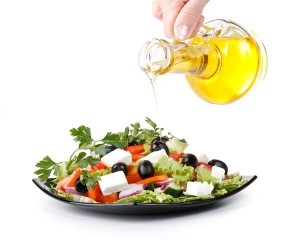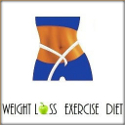-
Mark Bittman is WRONG – Butter is NOT Better!
Tuesday, December 23rd, 2025by Dr. Janet Brill, Registered Dietitian and Cardiovascular Nutritionist
Mark Bittman needs to stick to cooking and stop doling out harmful, misguided nutrition advice.
 His recent op-ed “Butter is back” extols the virtues of saturated fat intake as actually good for health.
His recent op-ed “Butter is back” extols the virtues of saturated fat intake as actually good for health. Excuse me, but what happened to VB6? Butter is an ANIMAL fat!
Mr. Bittman’s advice flies in the face of decades of conventional scientific wisdom on the clear relationship between saturated fat intake and an increase in LDL cholesterol, which translates into an increased risk for heart disease and is the number one cause of death among American men and women.
Bittman bases his advice on the new meta-analytical research, recently published in the Annals of Internal Medicine, which looked at dozens of studies on fats and heart disease from across the globe.
Researchers reviewed all of the results and came to the conclusion that saturated fats had no effect on heart disease risk.
What Mr. Bittman failed to mention is that this single meta-analysis is fraught with scientific error. So much so, that a number of distinguished scientists are criticizing the paper and even calling on the authors to retract it.
While the research showed no link between saturated fat and heart disease, one of the study’s numerous flaws was that it did not include what people ate to replace saturated fat in their diet.
When people replaced saturated fat with carbohydrates such as white bread and simple sugars, their risk for heart disease did not decrease.
If, however, those same people replaced saturated fat with healthy fats — like olive oil, nuts, and fatty fish — then they reduced their heart disease risk, as all fats are not created equally.
To address some of these flaws, the study authors quickly posted a new version of the publication.
Americans are naturally thrilled to hear this news, as the trend is to move away from processed foods and back to delicious butter, which is considered more of a natural, “real” food.
With all the fear about trans fat (man-made hydrogenated fat), and the misleading remarks about saturated fat not being so bad after all, people are starting to erroneously believe that butter is now heart-healthy.
Plus, there is nothing like the taste and texture of real butter and so Americans have simply thrown caution to the wind and really don’t know or care that they are eating that much butter. (In fact, butter consumption is at an all-time high—a dangerous trend that will surely contribute to an increase in American deaths from cardiovascular disease.)
Perhaps if the public were reintroduced to the fact that butter is NOT a healthy fat and that it contributes to disease, then they would become concerned with their consumption.
Some Fast Facts about Butter:
- 2,150 Americans die of cardiovascular disease (CVD) each day, an average of 1 death every 40 seconds.
- Approximately every 34 seconds, an American has a coronary event, and approximately every 1 minute 23 seconds, an American will die of one.
- The total direct and indirect cost of CVD and stroke in the United States for 2010 was estimated to be $315.4 billion.
According to the Heart Disease and Stroke Statistics – 2014 Update: A Report from the American Heart Association, reducing saturated fat intake while at the same time replacing saturated fat with polyunsaturated fats from vegetable oils will reduce CVD:
“A heart-healthy diet is one of your best weapons for fighting cardiovascular disease. When you eat a heart-healthy diet (foods low in saturated and trans fat, cholesterol, sodium and added sugars) and foods high in whole grain fiber, lean protein, and a variety of colorful fruits and vegetables) you improve your chances for feeling good and staying healthy – for life!”
Butter is NOT a Heart-Healthy Food
Despite what the media has led people to believe, butter is NOT a heart-healthy food.
Butter is rich in saturated fat and dietary cholesterol, two types of fatty substances that have proven to raise the risk of coronary artery disease. Butter is a major source of saturated fat intake in the U.S.
The fact is that the best way to fight heart disease is to consume a Mediterranean diet, low in saturated fat and rich in olive oil (monounsaturated fat) and fish (omega-3 fat).
Case in point, a recent headline:
“Mediterranean diet cuts heart disease risk by 30%: ‘Landmark’ study provides compelling evidence that it’s the type, not the level of fat, that counts for cardio health.”
The takeaway message is to rely on information disseminated by a nutrition professional and make sure that the conclusions are from findings from groups of studies rather than a single study.
A registered dietitian/nutritionist is the true expert on food and nutrition topics and should be your primary source of trusted nutrition information.
(published April 4, 2014)
 Janet Brill, Ph.D., R.D., LDN, is a leading diet, nutrition, and fitness expert specializing in cardiovascular disease prevention. She is the author of Cholesterol Down: 10 Simple Steps to Lower Your Cholesterol in 4 Weeks – Without Prescription Drugs (Three Rivers Press, 2006), and Prevent a Second Heart Attack: 8 foods, 8 Weeks to Reverse Heart Disease (Three Rivers Press, Feb. 2011). To learn more about Dr. Janet, get delicious heart-healthy recipes, or buy her books, please visit DrJanet.com or PreventaSecondHeartAttack.com.
Janet Brill, Ph.D., R.D., LDN, is a leading diet, nutrition, and fitness expert specializing in cardiovascular disease prevention. She is the author of Cholesterol Down: 10 Simple Steps to Lower Your Cholesterol in 4 Weeks – Without Prescription Drugs (Three Rivers Press, 2006), and Prevent a Second Heart Attack: 8 foods, 8 Weeks to Reverse Heart Disease (Three Rivers Press, Feb. 2011). To learn more about Dr. Janet, get delicious heart-healthy recipes, or buy her books, please visit DrJanet.com or PreventaSecondHeartAttack.com.



